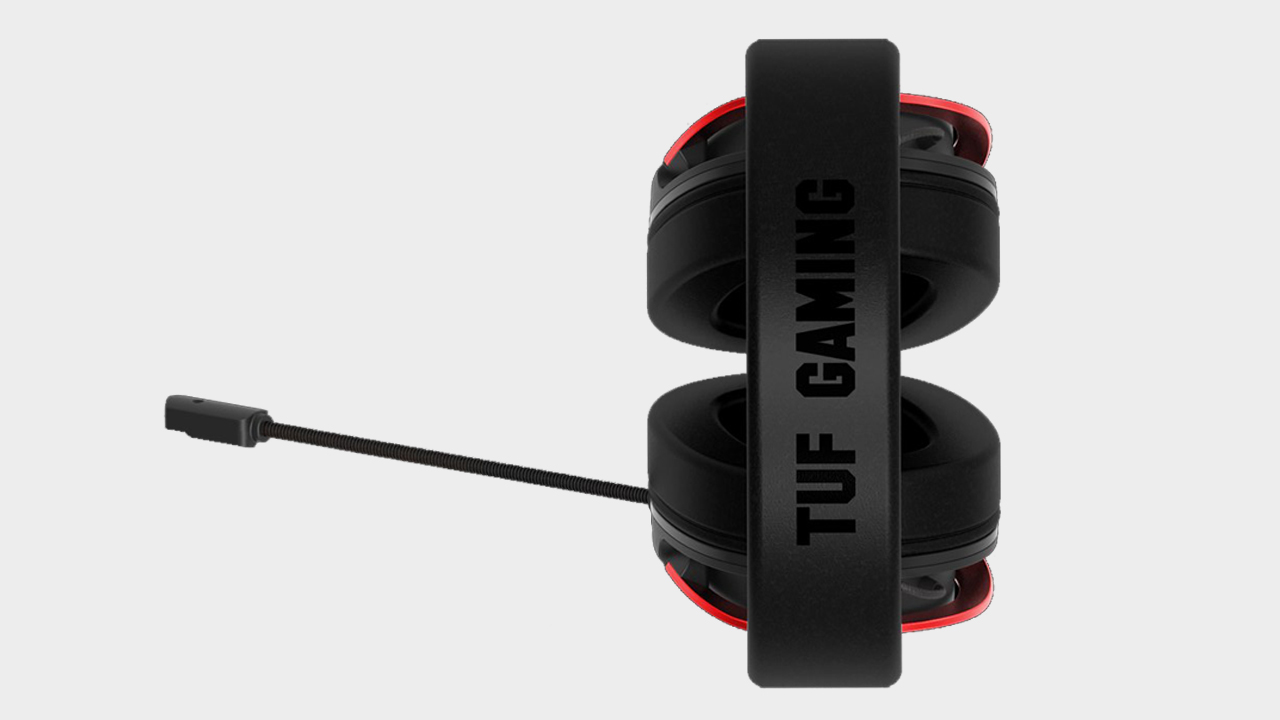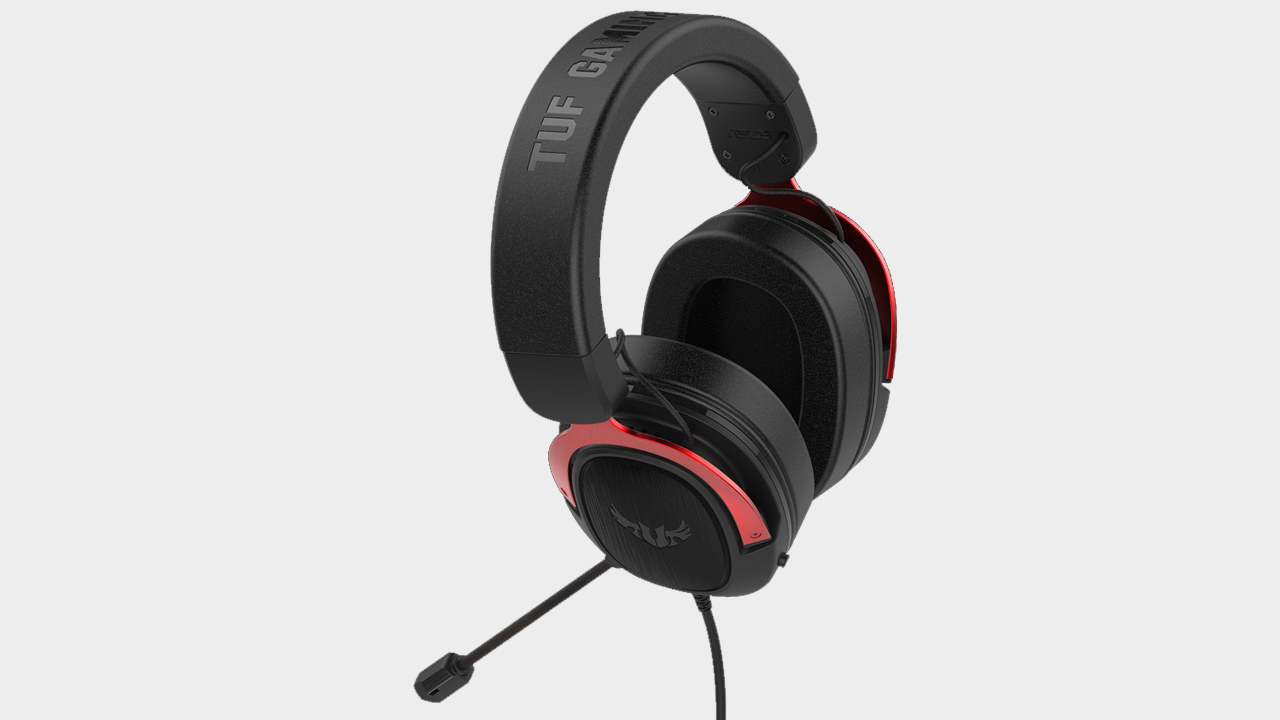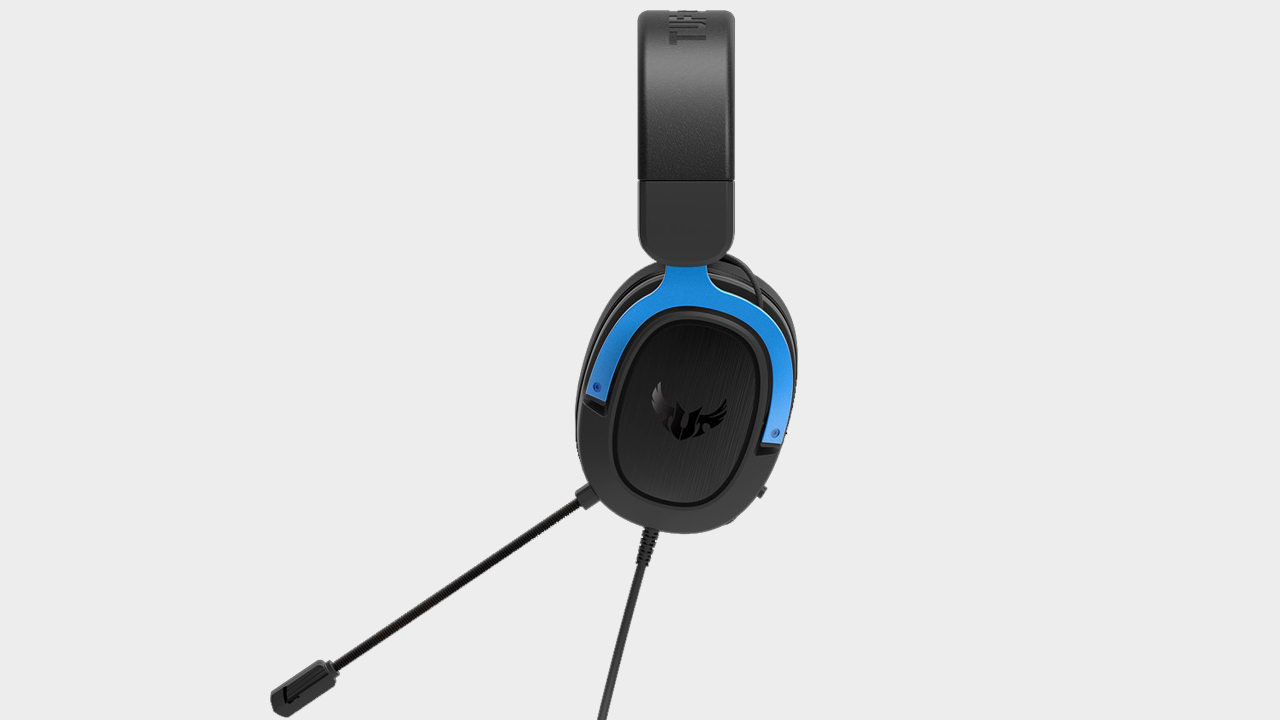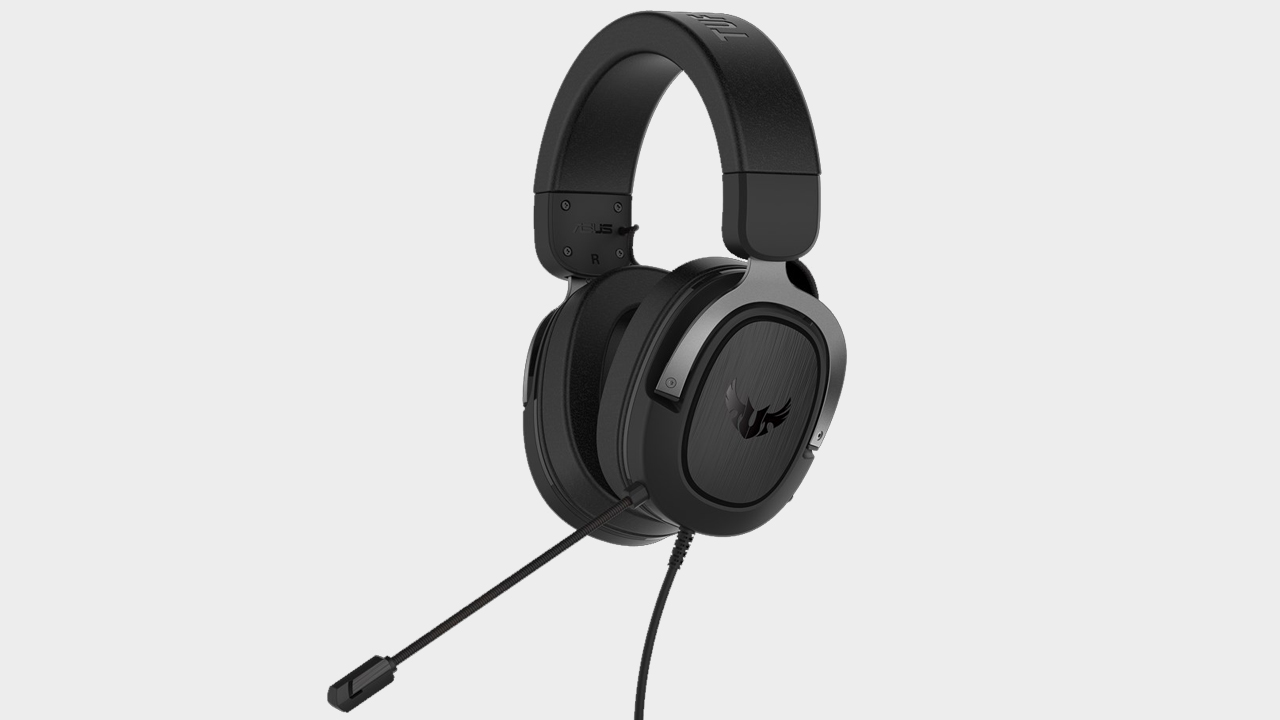GamesRadar+ Verdict
Not a world beater, and the weaknesses help to define the H3, but it has a great build quality and good noise cancelling resulting in a decent value set of cans.
Pros
- +
Sleek design and colour options
- +
Robust build and comfy to wear for long periods
- +
Noise cancelling is excellent
Cons
- -
Lack of directional audio is a hindrance in competitive games
- -
Hardly any bass whatsoever
- -
Microphone protrudes quite far and can get in the way
Why you can trust GamesRadar+
The latest addition to ASUS' TUF Gaming headset line is the H3, which joins the more expensive H5 and H7 sets but as a cheaper option for players on any console, on PC or mobile. The H3 gives the impression of being a headset not for audiophiles or those who seek the most immersive gaming experience, instead marketing itself toward gamers who want something slightly more than cheap and tacky but don’t want to spend three figures on the premium headsets.
ASUS TUF Gaming H3 - Design
As soon as you take the ASUS TUF Gaming H3 out of the box, one thing becomes obvious: this looks like a much higher-end headset than it actually is (I tested the black variant). Thick earcups are held by a solid stainless steel headband and leather cushions make for a slick aesthetic. Thanks to the memory foam inside the cushions and how lightweight the build is, wearing them for extended sessions doesn’t cause any strain whatsoever.
The microphone is a permanent attachment and is on a flexible metal arm that can be bent out of the way whenever you’re not using it. However, it always, it sits frustratingly just inside your peripheral vision unless you bend it below your chin. Doing this means it often hits your shoulder if you turn your head; a minor inconvenience for an otherwise stylish budget headset. There’s also a good range of colour options including black, blue, red, and silver available so you can pick one to accompany your console’s or setup’s aesthetic.

ASUS TUF Gaming H3 - Features
Impressively, the H3 boasts 7.1 virtual surround sound, the same system used in both the H5 and H7 headsets. For the most part, you can tell; gunshots and in-game chatter in the Call of Duty: Modern Warfare multiplayer beta are clear and vibrant, and chainsawing someone in half in Gears 5 sounds as gruesome as you’d expect, no matter which way you're facing.
Rather than featuring controls along the cable as you often find on gaming headsets, the volume and mic toggle are on the underside of the left earcup. I prefer it since it means the cable doesn’t catch on anything, but the downside is that the cable provided is much shorter than you tend to find with gaming headsets, so it’s not great for any situations where you need to be further from the audio jack.

ASUS TUF Gaming H3 - Performance
The most important aspect; how does the ASUS TUF Gaming H3 perform? One of the first things I noticed when I started playing Borderlands 3 was how effective the noise-cancelling is. Even when there’s very little going on in-game, the memory foam leather cushions provide an almost flawless escape from the real world, so much so that when talking to friends on Discord I’ve had to make sure I’m not shouting by accident since I can hardly hear myself. It’s also worth noting that the leather makes it much warmer to wear than a headset with cloth cushions, so if you tend to get warm easily, you may need to wipe down the headphones frequently.
For competitive multiplayer games, the H3 does a fine job of immersing you and balancing the in-game sounds with other players’ voices. But not without a few caveats. One key aspect to games such as Modern Warfare, Rainbow Six Siege and Fortnite is to listen out for enemy footsteps and pinpoint their exact location simply through audio. You won’t find that the H3 helps you out here: in all three aforementioned games I struggle to tell whether an enemy is above or below me, even being surprised from behind one or two times. Having the ability to help you pinpoint enemies and in-game audio cues is really the bare minimum requirement for a gaming headset so this is disappointing. Microphone quality on the other hand is absolutely fine on both PS4 party chat and Discord; not exceptional but nothing to complain about either.
If you’re someone who has one headset for both gaming and music, it’s hard to recommend the H3 for this either. These headphones don’t quite do the music in recent games like Borderlands 3 justice, and even listening to music through Spotify the audio sounded somewhat tinny thanks to a lack of depth.
However, it is important to mention that the H3 is almost perfect for Nintendo Switch players, but only when in handheld mode. Dragon Quest Builders 2 and Yoshi’s Crafted World both sound clear and crisp, and while they’re not games lauded for their audio design, they did a more than adequate job and I’d have no qualms with taking this headset travelling. The only downside is that the headband doesn’t fold in any way, so it can be awkward to pack — especially due to the protruding microphone.

Overall - should you buy it?
My initial impressions of the ASUS TUF Gaming H3 were strong, but as I use it more, discrepancies and weaknesses started to become more prevalent. As someone who plays a lot of multiplayer shooters, the lack of directional audio is a real frustration, as is the poor bass quality when listening to music. This product is ideal for someone looking to dive into a gaming headset for the first time, perhaps to quieten their gaming sessions late at night, but if you’re looking for top tier audio then you won’t find it here. The build quality is fantastic and the noise cancelling is some of the best I’ve experienced, but when it comes to where it really matters, the H3 comes up short.
Give me a game and I will write every "how to" I possibly can or die trying. When I'm not knee-deep in a game to write guides on, you'll find me hurtling round the track in F1, flinging balls on my phone in Pokemon Go, pretending to know what I'm doing in Football Manager, or clicking on heads in Valorant.




